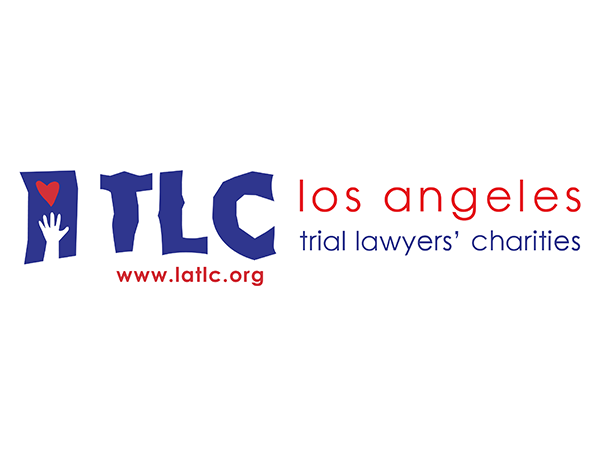
CRIMINAL LAW
Los Angeles Criminal Defense Lawyers
The High Stakes of California Criminal Law
Being convicted of a crime can lead to devastating life consequences. You can lose your right to vote, your ability to make a living — and even your freedom. In California, the stakes for criminal law cases can prove to be even more substantial as a result of the “Three Strikes” sentencing law. Our Los Angeles Criminal defense attorneys handle misdemeanor, felony and Juvenile cases all over California and throughout Los Angeles County, Ventura County, San Francisco Bay Area, Orange County and San Diego County. Our team of experienced Los Angeles criminal lawyers also handle cases in federal court including RICO cases and white-collar criminal defense.
Although white-collar crimes can take many different forms, some common ones include:
California Three Strikes Law
Nearly 25,000 Californians have been sentenced to 25 years or more behind bars after accumulating three felony convictions. Under the 1994 law, many defendants were sentenced to 25 years-to-life in prison under the “Three Strikes” law even if the third felony was non-violent or relatively minor in nature. In 2012, voters approved Proposition 36 which substantially amended the law with two primary objectives:
1. The requirements for sentencing a defendant as a third strike offender were changed to 25 to life by requiring the new or 3rd felony to be a serious of violent felony with two or more prior strikes to qualify for the 25 year-to-life sentence; and
2. The addition of a means by which designated defendants currently serving a third strike sentence may petition the court for a reduction of their term to a second-strike sentence, if they would have been eligible for a second-strike sentence under the new law
California Criminal Law: The Basics
Under California law, there are three primary groups of offenses:
Infractions
These are public offenses that are not punishable by imprisonment. Basic traffic violations are a common example of an infraction. These offenses are generally resolved with a fine being paid, and those who are cited generally do not have the right to a jury trial or a public defender.
Misdeneanors
These are offenses punishable by up to one year imprisonment in a county jail and a fine, generally not exceeding $1,000 to $2,000. Petty theft, trespassing and public intoxication are examples of crimes that are often charged as misdemeanors.
Felonies
This category is reserved for the most serious crimes. Punishment can include life imprisonment in a state prison or even death, although some felonies can result in probation. Crimes in this category range from drug offenses, domestic violence, felony DUI, serious assault, manslaughter and murder.
There are many crimes that fall within a gray area between misdemeanor and felony, and may be charged as either. These are often referred to as wobbler offenses. Factors that may influence whether a crime is charged as a felony or misdemeanor include whether the offender has prior convictions and whether their aggravating circumstances such as the use of a weapon.
CFK: Criminal Law Practice Areas
At CFK, we take a comprehensive approach to criminal defense. We’ve spent more than three decades in California courtrooms fighting for the rights of the accused, providing us with unprecedented experience in a wide range of criminal law categories. Our practice areas include:
· Assault Crimes
· Assault with a Deadly Weapon
· Assaulting a Police Officer
· Alcohol & Beverage Control Violations
· Addiction / Substance Abuse
· Attempted Murder
· Auto Burglary
· Building Code Violations
· Brandishing a Weapon
· Burglary
· Cannabis Law
· Corporate Crime / Regulatory Offenses
· Corporal Injury to Spouse
· Criminal Appeals
· Criminal Threats
· Domestic Battery
· Domestic Violence
· Drug Crime
· Drug Possession
· Drug Possession For Sale
· DUI Causing Injury
· DUI Defense
· Embezzlement
· Federal Crimes
· Felony Hit and Run
· Firearm Violations
· Fire Code Violations
· Grand Theft Auto
· Grand Theft
· Hit and Run
· Human Trafficking
· Insurance Fraud
· Juvenile Crimes
· Prescription Drug Fraud
· Pre-Filing Representation
· Prostitution
· Probation Violations
· Resisting Arrest
· Restraining Orders
· RICO cases
· Robbery
· Sex Crimes
· Shoplifting
· Theft Crimes
· Trespassing
· Violent Crimes
· White Collar Crimes
If you or someone you love has been charged with a crime, contact CFK today to learn more about how we can help you.
How to Find the Right California Criminal Defense Attorney
Being charged with a criminal offense is serious business, as a conviction can have lifetime ramifications. While indigent defendants in serious criminal cases are entitled to a public defender, a defendant with sufficient financial resources might be required to retain private counsel. Opting for a private attorney gives defendants in criminal cases the ability to choose a lawyer whose experience and track record will best protect their interests. It’s important, however, to closely vet all prospective candidates for your representation. In order to determine the right attorney for you, be sure and ask the following:
How long has the Attorney been practicing?
How much experience does your firm have with criminal law?
How many cases similar to my own have you represented?
How many jury trials has the Attorney completed?
It is important to understand that a minor theft offense may affect your future and reputation indefinitely. A conviction can make it impossible to get a job and even difficult to secure an apartment or a house. A landlord or potential employer will almost certainly learn of a conviction through a background check. For example, a minor theft conviction that appears trivial may prove to be a roadblock to that home or job you are seeking. That is why you must take the time to choose a qualified Los Angeles defense attorney to get the result you need to move forward. You may have defenses available or mitigation factors that may persuade a prosecutor to consider a reduction, diversion program or other options to spare you the embarrassment and consequences of a serious conviction. By asking important questions and meeting with attorneys before you hire them, you can ensure that you find the best possible Los Angeles criminal lawyer for your needs.
California Criminal Law Facts:
California has the fifth highest incarceration rate in the U.S. According to the Prison Policy Initiative: 239,000 California residents are behind bars today. 131,000 are in state prisons. 82,000 are in local jails. 16,000 in federal prisons and 10,000 are in youth facilities or involuntarily committed. Additionally 326,000 Californians are on probation or parole.
Criminal Process
Do you understand your Miranda Rights? The United States Supreme Court has ruled: “The prosecution … does not need to show that a waiver of Miranda rights was express. An implicit waiver of the right to remain silent is sufficient to admit a suspects statement into evidence. … Where the prosecution shows that a Miranda warning was given and that it was understood by the accused, an accused’s uncoerced statement establishes an implied waiver of the right to remain silent. … Thus, after giving a Miranda warning, police may interrogate a suspect who has neither invoked nor waived his or her Miranda rights.”
Arrest & Bail
The criminal process begins with the arrest. After a person has been arrested, he or she will typically be detained at a local or community police station and held until the time of arraignment and formal charges are filed. A bail amount is then set based on the most serious crime he or she is booked on. The defendant will then appear before a magistrate or judge within 72 hours of the arrest. California has a bail schedule which suggests the appropriate bail amount depending on the nature of the crime. In rare cases such as capital murder, the judge may choose not to set bail. The judge may refuse to set bail where a defendant has committed a probation violation. It is important to immediately retain a skilled criminal defense attorney who will be prepared to appear at the time of the arraignment and address the bail issue. Often, a skilled defense attorney will be able to secure a substantial reduction in the bail amount which may be the difference between freedom or detention pending the outcome of the criminal proceedings.
Arrainment
At the arraignment, the defendant will appear before the judge, where the judge will read the charges being brought against the defendant. After listening to a description of the charges, the defendant will then enter a plea of guilty, not guilty, or no contest. If the defendant pleads not guilty, which is usually the case, the judge will set a date for a preliminary hearing or probable cause hearing. Then, depending on whether the defendant is facing felony or misdemeanor charges, his or her case will move to either a pre-trial conference or a preliminary hearing. During the arraignment, the defense can also negotiate with the judge to have bail lowered or dropped completely. This is common in cases involving first-time arrests.
Pre-Trial Conference
This meeting occurs between the defense and prosecution when the case involves misdemeanor charges. At this time, the defense can negotiate with the prosecution for a reduction or dismissal of the charges, or the defense can work with the prosecution to reach a plea bargain. Generally in a plea bargain, the defendant agrees to plead guilty in exchange for reduced penalties or sentencing. If an agreement of some sort can be reached during the pre-trial conference, then the case will not move to court, but rather be resolved during this part of the criminal process.
Preliminary Hearing
Preliminary hearings are held for cases involving felony crimes, and are slightly different than pre-trial conferences. At this hearing, the judge will review all evidence and hear witness testimony to determine whether or not sufficient evidence exists to send the case to trial. A person charged with a felony has a right to a preliminary hearing within ten days of an arraignment. A preliminary hearing is an evidentiary hearing where witnesses testify and are subject to cross-examination by your defense attorney. At the conclusion of this hearing, a judge or magistrate decides whether sufficient cause exists to make the defendant stand trial. It is important to understand that the standard of proof at a preliminary hearing is not guilty beyond a reasonable doubt. Rather, the standard of proof at a preliminary hearing is whether a reasonable suspicion exists or whether it is “more likely than not”. The preliminary hearing stage of a criminal prosecution is critical and it is imperative that you retain an experienced attorney that will aggressively cross-examine all witnesses. Effective cross-examination at this hearing can highlight the weaknesses in the case and also provide a preview as to how the government may proceed at trial. Additionally, an effective defense attorney may convince a judge to reduce a felony to a misdemeanor at the conclusion of a preliminary hearing. Where this occurs, the government is precluded from seeking a felony conviction at trial on that particular charge.
Trial, Verdict & Sentencing
If the judge believes there is enough evidence to try a case, or if a plea bargain has not been reached, the case will move to trial, where both the prosecution and defense will have the opportunity to present and argue their cases before a judge and jury. At the end of the trial, the jury will convene and make a determination, based on the evidence and testimony presented during the trial, as to whether or not the defendant is innocent or guilty. If the jury finds the defendant not guilty, the trial ends there and the defendant is free to move on with his or her life. If the jury finds the defendant guilty, the judge will schedule a sentencing hearing, where he or she will read the defendant their punishment for committing the crime.
Why our California Criminal Lawyers are Superior
When it comes to criminal defense, our philosophy remains second place is not an option. We provide discreet, determined and strategic representation starting the moment we are retained. Many of our clients hire us the moment they learn of an ongoing criminal investigation. This gives us a unique opportunity to gather facts, interview witnesses and communicate with law enforcement and prosecutor. A proactive and aggressive approach can often be the difference between charges being filed and a prosecutor deciding to decline prosecution. Our corporate clients often approach us when first notified of an investigation. This early intervention may provide a window of opportunity to take steps to alleviate or mitigate any marginal criminal conduct or regulatory issues and avoid the costs, stress and embarrassment of prosecution. Whether we go to trial, reach a favorable plea agreement or make the problem go away, our goal remains the same. We work hard to get you the best result possible. If you are currently under investigation or have been arrested and need of an experienced California criminal lawyer, contact us today for a consultation. Our criminal defense law firm serves clients throughout Los Angeles County, including the cities of Beverly Hills, Long Beach, Pomona, San Bernardino, Riverside and Orange County.












